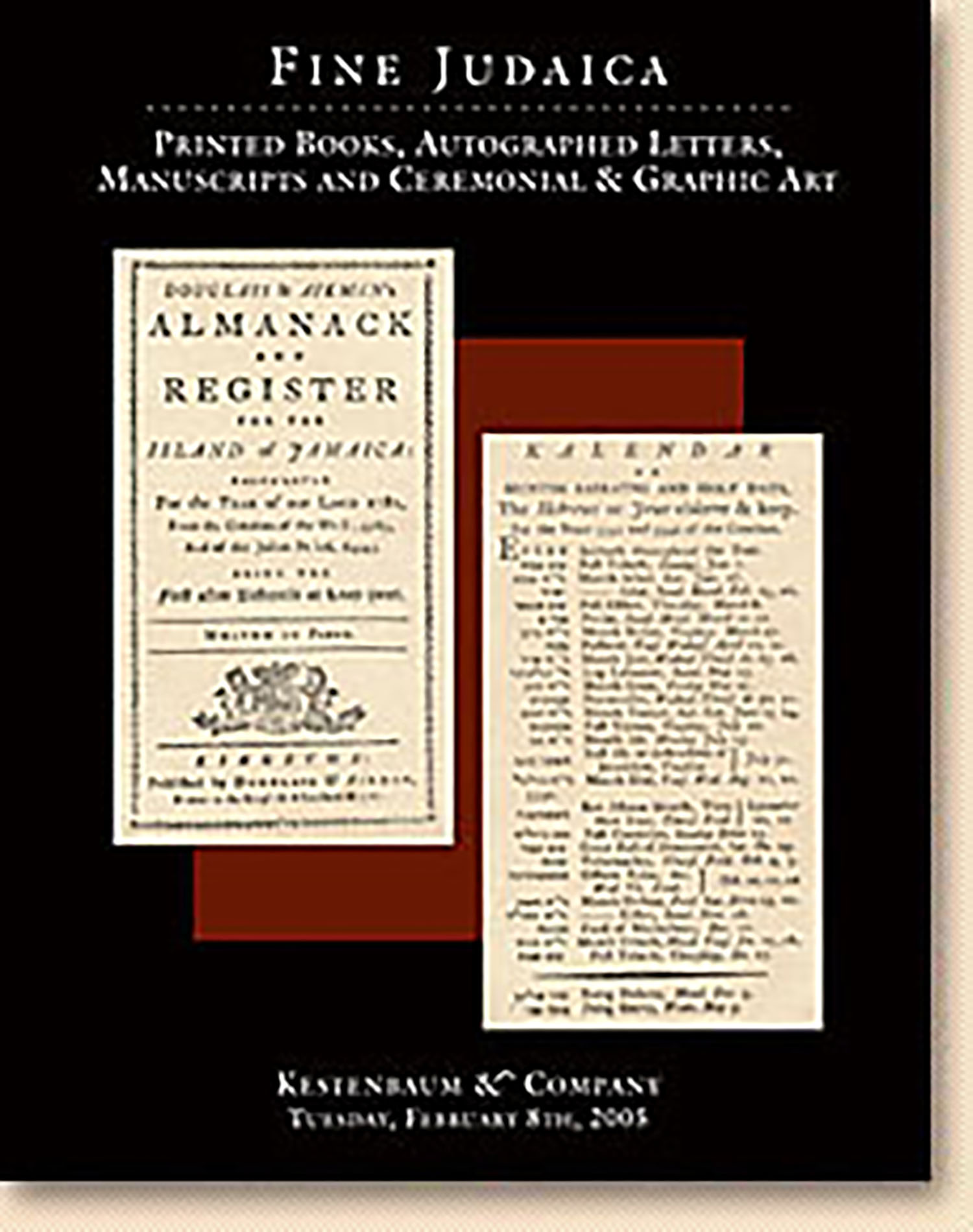TWO LETTERS OF COLONIAL COUNTER-INTELLIGENCE

AUCTION 27 |
Tuesday, February 08th,
2005 at 1:00
Fine Judaica: Printed Books, Autographed Letters, Manuscripts, Ceremonial & Graphic Art
Lot 233
(ANGLO-AMERICAN JUDAICA)
TWO LETTERS OF COLONIAL COUNTER-INTELLIGENCE
Martinique and London: 1762
Est: $8,000 - $10,000
PRICE REALIZED $7,000
A SEPHARDIC JEW FOILS THE “PIRATES OF THE CARIBBEAN.”
The Buzaglos were an Anglo-Jewish family that originated in Morocco. The most celebrated member of the clan was the renowned kabbalist, Rabbi Shalom Buzaglo (c.1700-1780), author of the commentary Mikdash Melech, which is indispensable to the study of Zohar. Our correspondent, the rabbi’s adventurous brother, Abraham Buzaglo (1710-1782) is the famed inventer of the Buzaglo stove, of which a specimen is to be found in the Governor’s Palace, Colonial Williamsburgh, Virginia. A third brother, Joseph, even more adventursome than Abraham, died in the the Dutch Antilles isle of St. Eustatius in 1767, after leading a life of intrigue. See Cecil Roth, “The Amazing Clan of Buzaglo,” Transactions of Jewish Historical Society of England, Vol. XXIII (1971); Irene Roth, “Sephardic Images Associated with Cecil Roth,” The American Sephardi, Vol. VI, Nos. 1-2 (Winter 1993), pp. 13-15; EJ, Vol. IV, cols. 1544-1545.
One needs to view the present correspondence against the backdrop of European colonial interests in the Caribbean. The war Buzaglo alludes to in his letter is known in the United States as the “French and Indian War,” and in Europe as the “Seven Year War” (1756-1763). In this war, England and France vied for control of the North American continent. The Spanish belatedly joined the French against the British in 1762. In retribution, an English expeditionary force occupied Havana, Cuba in that same year. The war was concluded with the treaty of Paris in 1763, whereby France ceded Dominica, Grenada and Tobago to Britain, and Spain ceded Florida to Britain in exchange for the return of Cuba.
Employing trops from New York under General Monckton, Admiral Rodney captured Martinique from the French on 16th February 1762, and soon afterwards took Grenada, Santa Lucia and St. Vincent. He was to take the strategically important Dutch island of St. Eustatius during the American War of Independence in 1781.
One appreciates that by colluding with the French and Spanish, De Windt, the governor of St. Eustatia, was violating Dutch neutrality
